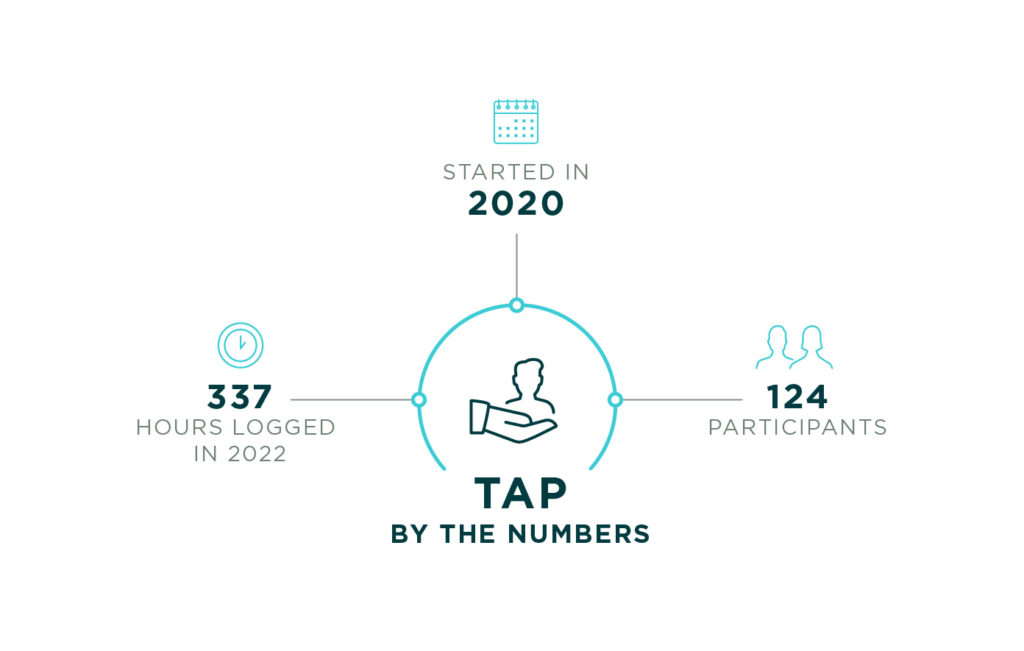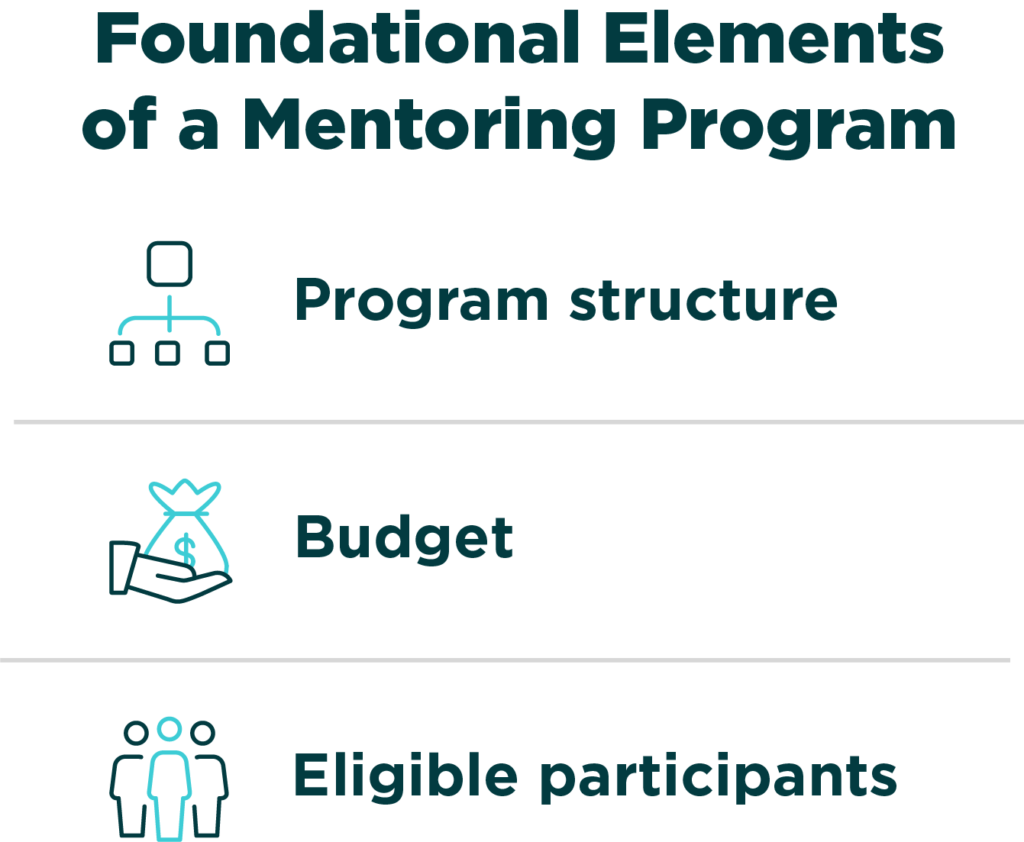


Lisa Wilson, Director of Human Resources (Email); Erica Gray, Senior Human Resources Associate (Email); Alyssa Campany, Human Resources Associate (Email)
January is National Mentoring Month. Mentorship programs provide the opportunity to hear new perspectives and tend to benefit newer professionals with new opportunities and resources they might otherwise not be able to access. According to MENTOR, young adults with mentorship see several benefits.
Senior staff who choose to mentor receive their share of intangible benefits as well. Through mentorship, senior staff can forge a meaningful connection with their mentee and gain a new perspective, which can be a humbling and rewarding experience. Someone is ready to be a great mentor if they are motivated about developing others and have a mix of experience and wisdom to pass along. On the flip side, a great mentee is open-minded to change, proactive and goal-oriented, and interested in learning from others.
Raftelis has entered its third year of Tapping into Potential (TAP) – its voluntary mentoring program led by Erica Gray, Senior HR Associate. TAP pairs senior staff with junior staff, with a focus on ensuring diversity, equity, and inclusion. Through TAP, we aim to increase understanding and foster opportunities for personal and professional growth. Our pairing process involves asking participants about their interests, what they hope to gain, and what they can bring to the relationship. We use these questions to match employees with mutual interests and goals.

Even Raftelis’ CEO Peiffer Brandt participates. “I see tremendous value in the program. Serving as a mentor has provided me the opportunity to see the industry through others’ eyes and offered me new perspectives when approaching the challenges we face. I hope those that I have mentored have gotten at least a fraction of the value I have received from the program. I look forward to the opportunity to continue mentoring, and I am proud that Raftelis gives employees the chance to take part in such a rewarding program,” says Brandt.
Sarah Neely, a newer professional who joined Raftelis in 2021 said, “I have been very lucky to experience two great mentors from the Tapping into Potential Program. The program has allowed me to make connections with leaders in two different offices and two different service lines, giving me the opportunity to feel more connected at Raftelis. Both of my mentors helped provide valuable insights into the company and industry as a whole, and advice for my own personal and professional development. I enjoyed getting to know each of my mentors and learning about their unique paths and their own goals for their future.”
Senior Consultant Diana Ling, who joined Raftelis in 2021 said, “The mentorship program allowed me to have an open dialogue and dedicated time to ask the questions I’ve been curious about, especially as a new member of the team. These questions led to honest conversations regarding company culture, various team approaches, and what it takes to be successful as a consultant. I also enjoyed learning how a senior-level individual tackled the challenges I am facing today; it has better prepared me for future obstacles in my desired career path.”
Employees who feel valued by their employer are more likely to have a positive attitude about their job and are more invested in seeing the continued success of their workplace. If you are an employer considering starting a mentoring program, think through how mentorship can boost employee engagement and result in better retention and higher productivity. To build a successful mentoring program, you must first define your goals; decide your purpose by asking what needs you must address. You can start the planning process once you have that in mind. Planning includes laying out some foundational elements, such as budget, structure, and who participates.

After laying the foundation, you’ll need to publicize the program to employees and thoughtfully match mentors with mentees. Monitoring progress and asking for feedback at least annually is a key way you will ensure the program remains effective.
It can be challenging to build a mentorship connection when your workplace has no formal program but finding someone with shared values is well worth the extra time and energy it takes. Local professional associations often offer the opportunity to cultivate a mentor-mentee relationship. Networking is another great way to find a mentor who might be able to provide you with a new perspective or broaden horizons, and you will expand your connections in the process. Deepening an existing relationship might be another way to find the mentorship you’re looking for. Senior Manager Sam Villegas developed one of the most important mentoring relationships of her career organically. “My first and most important mentor was a coworker who worked across the hall from me at my first job. She was about 10 years older than me. She passively mentored me (without even knowing it) as I watched how she handled clients on the phone and presented her work during staff meetings. She turned me onto a professional association and shared advice. Even after we didn’t work together, we stayed in touch, and this mentor helped me make some major milestone decisions in my life. Thirty years later, I consider her one of my dearest friends.”
Raftelis values its employees, which is why Tapping into Potential is one of the many programs we offer to foster inclusion and engagement. Recognizing the importance of mentorship has helped us build a robust program, through which we acknowledge and fulfill our employees’ need for learning and support to help them grow and develop personally and professionally.